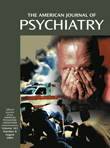Differential Response to Placebo Among Patients With Social Phobia, Panic Disorder, and Obsessive-Compulsive Disorder
Abstract
OBJECTIVE: Placebo effects in treatment of three anxiety disorders were compared. METHOD: Treatment response and patients’ treatment expectancy were examined by using data from 70 patients with obsessive-compulsive disorder, social phobia, or panic disorder who received placebo in three randomized, controlled trials comparing cognitive behavior therapy, medication, and their combination to placebo. RESULTS: Patients with obsessive-compulsive disorder were less likely to respond to placebo than patients with generalized social phobia or panic disorder. Differential expectancy did not account for these findings. CONCLUSIONS: Further examination of the placebo effect across the anxiety disorders may elucidate maintenance mechanisms of these disorders and have implications for development of more effective treatments.



